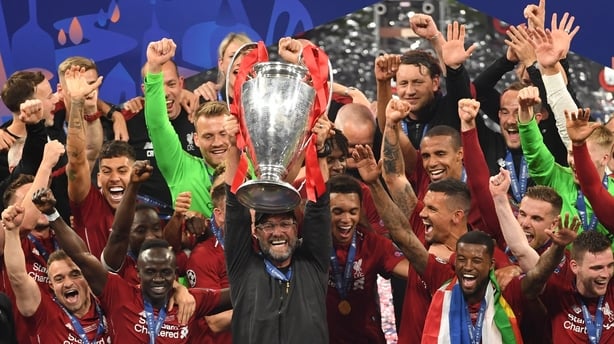Liverpool won the last of their 18th national titles in the 1989-90 season, but the decline of an ageing team had already started in the wake of the Hillsborough disaster.
There was a sense of inevitability that the empire was crumbling as the season started, as former defender Steve Nicol recalled.
"The last time we won the league, we were in decline from the team the year before. There's no way we played half as well or with the same passion or commitment," Nicol, who played for the Reds from 1981-95, wrote in his autobiography, Five League Titles and a Packet of Crisps.
"There’s just no way we were as good that year - the last time we won the league - compared to the year before. That’s when (the decline) started."

Nicol said he was badly shaken by the Hillsborough disaster, when 96 people died and 766 were injured during the 1989 FA Cup semi-final between Nottingham Forest and Liverpool in Sheffield.
Things would not be the same for Liverpool after the tragedy. Players were shaken, and manager Kenny Dalglish would eventually leave, self-admittedly 'unwell and under strain'.
"Three years of being unable to focus properly," said Nicol. "Three years of playing in a bubble. Three years on autopilot. It was hard to realise that was the case at the time. Impossible, in fact.
"Trying, and failing, to deal with the aftermath was obviously having an effect but no-one knew how to properly cope with it."
Having lost the title in dramatic fashion to Arsenal in the previous season, the Reds started the 1989-90 term with an 11-match unbeaten streak.

But Liverpool's edge was going and the decline was epitomised by the FA Cup semi-final against Crystal Palace when they lost 4-3 in extra time after leading 1-0 and 3-2, all the Londoners's goals coming from set pieces.
It was suggested that Liverpool were not ready for the shift about to happen in English football, with the creation of the Premier League as the clubs took advantage of lucrative television rights deals and soaring prices.
"You can take away (the kids') ability to support their local team and the best way to do that, of course, is to up the price. That's been happening ever since the Football Association stupidly allowed the Premier League to break away from the Football League," Liverpool-born screenwriter Jimmy McGovern wrote.
"But the bourgeoisification of football is in no way to blame for the decline of Liverpool Football Club. No, our decline began a little earlier: at Hillsborough in 1989."
In 1990 Aston Villa finished second in a top flight that included Wimbledon, Coventry City and Luton Town - with Sheffield Wednesday, Charlton Athletic and Millwall relegated.
Leeds United won the second division to return after an eight-year absence and would go on to win the league two years later.
After four barren years, Alex Ferguson finally collected his first piece of silverware at Manchester United as they beat Crystal Palace in a replay to win the FA Cup, though they finished a distant 13th in the league, five points above the relegation zone.
It would be another three years until he won the title - the first edition of the fancy new Premier League - to end a 26-year drought that used to delight Liverpool fans.

That sparked two decades of United dominance that saw them overhaul Liverpool's record of 18 league crowns. By the time Alex Ferguson retired in 2013, the Red Devils had 20 to their name.
All the while the Merseysiders have had to kick their heels in frustration as their quest to be the best team in England has extended to three decades - though they have, somewhat paradoxically, managed to make four Champions League finals in that time, winning two.
They now stand on the cusp of finally ending that 30-wait and becoming league champions once again. Whether it is the start of a fresh Liverpool dynasty or not, only time will tell.
For now, Reds fans will surely just be happy to savour the moment that's eluded them since 1990.

